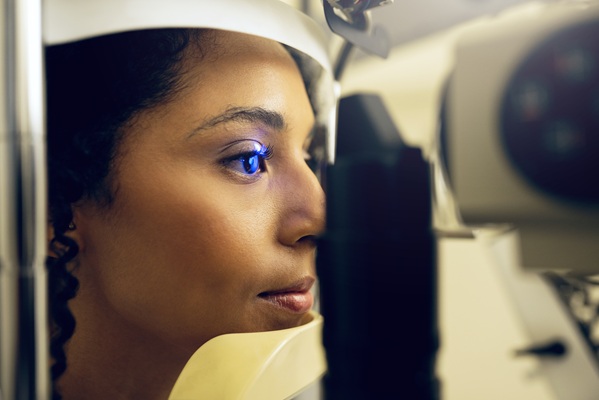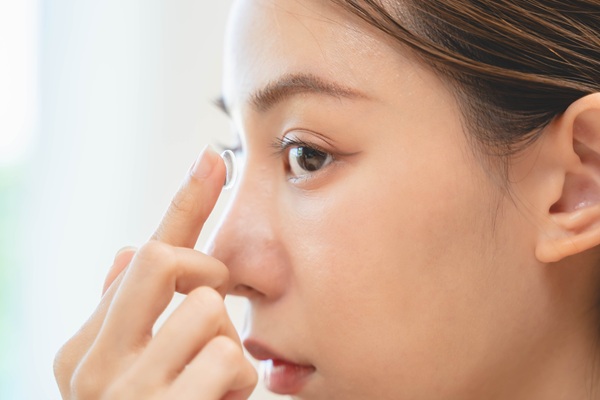5 Eye Problems an Eye Doctor Can Detect

An eye doctor focuses their efforts on managing, diagnosing and treating eye conditions. They also help patients maintain good eye health so that problems don’t arise later on.
Want to know what problems an eye doctor can detect? In this article, we discuss five of these common conditions in depth. This information can be helpful to someone who isn’t sure what type of problem they are experiencing with their eyes or vision.
5 eye problems an eye doctor can detect
Outlined below are a few common problems that an eye doctor can detect, manage and treat. Keep reading to find out more!
Myopia
Myopia is a very common problem that eye doctors detect. When a patient’s vision is nearsighted, the doctor will diagnose them with myopia. Typically, the eye doctor will perform a visual acuity test to diagnose this. The next step in the process would be for the patient to test out contacts or glasses so that their vision can be corrected.
Hyperopia
An eye doctor can also detect hyperopia, which is the opposite of myopia. Instead of the patient experiencing nearsightedness, they will actually have trouble with farsightedness. Hyperopia is when the patient is unable to clearly see things that are up close. Just like with myopia, the eye doctor can prescribe glasses or contacts to treat the condition.
Cataract
Eye doctors are trained to detect a cataract in the eye, which is a serious condition that often causes a lack of vision. It is also the number one leading cause of blindness. A cataract is a clouding of the lens of the eye, which makes it extremely difficult to see. Once detected, an eye doctor will likely recommend the removal of the cataract through a surgical procedure.
Glaucoma
Another condition that an eye doctor can detect is glaucoma, which refers to a number of different diseases that damage the optic nerve of the eye. Glaucomas can result in blindness or vision loss. With the help of an eye doctor, the patient can undergo treatment to lower eye pressure. Treatment may include prescription eye drops or medications, and in some severe situations, laser surgery may also be necessary.
Amblyopia
The medical name for a lazy eye is amblyopia. This medical condition is quite common in children and usually happens when the brain is not connecting with the eyes. Eye doctors are not necessarily able to treat amblyopia once it has developed into adulthood. However, child patients may be able to undergo treatment to correct or at least improve the vision impairment from the lazy eye.
Get started today!
Want to know more about what an eye doctor can detect? Our team would be happy to help you! Eye conditions are very serious and should never go ignored. Reach out to our office today so that we can get you started with the help that you need. Give us a call or stop by.
Request an appointment here: https://www.texasoptical.net or call Texas Optical at (214) 771-7333 for an appointment in our Dallas office.
Check out what others are saying about our services on Yelp: Read our Yelp reviews.
Recent Posts
For those living with diabetes, undergoing a diabetic eye exam is one of the most important steps in protecting their vision and overall eye health. High blood sugar levels can lead to a range of complications, including conditions that damage the eyes over time. These exams help detect these issues before they become serious, allowing…
Contact lenses provide clear vision and convenience for individuals who prefer an alternative to eyeglasses. However, proper care and maintenance are essential to prevent infections, irritation, and eye damage. Neglecting hygiene practices can lead to serious eye conditions, including corneal ulcers and keratitis. Understanding how to clean, store, and handle contact lenses ensures long-term eye…
Maintaining eye health and preventing long-term issues is the result of consistent and quality vision care. Many people focus on overall wellness but may overlook daily habits that support healthy eyesight. However, taking simple steps each day can protect vision, reduce eye strain, and prevent future complications. By making eye health a priority, it is…
Prescription contacts provide vision correction, comfort, and convenience for those who do not want to wear glasses. However, caring for and wearing contacts takes some getting used to. Learning to insert, remove, and maintain them will help ensure a comfortable and safe experience.Not all contact lenses are the same, and choosing the right pair is…


